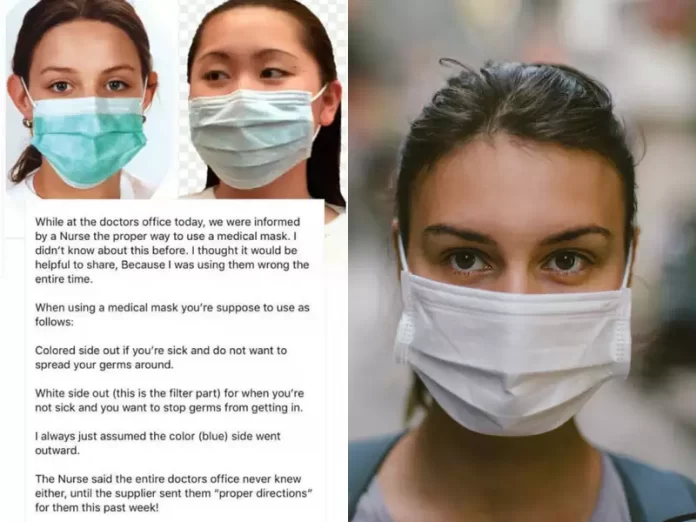We all know that wearing a face mask will help prevent us from spreading COVID, SARS-CoV 2 and becoming sick ourselves. But there’s been less guidance on what kind of masks provide the best protection, so hopefully, this article helps clear things up. .............................................................
Experts recommend that N95 respirators should be prioritised for protection against COVID-19 in healthcare settings. Essential workers and those who regularly wore them before the pandemic can continue wearing these masks, but cloth is now an acceptable option for masking. With several mask options available, what exactly should you be wearing?
Read on to learn more about the different types of masks and how they can protect you.
What Are the Different Kinds of Masks?
The following are masks available and the degree of protection they provide.
KN95 Masks
Like many masks, the KN95 is designed to provide protection from particles in the air. This mask has been shown to provide better filtration than other types because it can filter out both small and large airborne objects when you inhale them.
But be careful when purchasing a KN95, as many knock-off pieces are being sold that do not meet quality requirements. Purchase only from reliable sellers to avoid getting scammed.
N95 Masks
The N95 mask is a specially designed respirator that must meet quality standards. This high-quality piece of equipment offers maximum protection and has the same filtering capacity as KN95s.
The general public can wear nonsurgical N95s. On the other hand, the surgical N95 mask is designed to protect healthcare providers from potentially infectious blood and tissue spills. Users must be trained and pass a fit test before they can use one.
Medical Masks
Medical masks are otherwise called surgical masks. These disposable, lightly fitted garments do not protect the wearer from contact with droplets and sprays that contain germs, but they can filter out large airborne particles when you breathe in deeply.
To ensure a more customised fit, tie the ear loops where they fasten to your mask. Afterwards, fold and tuck in any extra material beneath the edges for a neat look.
Cloth Masks
The cloth mask is a barrier for protection against airborne respiratory droplets when the wearer talks, coughs or sneezes. It also tries to trap these small particles, so they do not enter your lungs and cause illness.
The most effective cloth mask is made up of multiple tightly woven cotton fabric layers. This will stop more droplets from permeating through or escaping its boundaries, ensuring that you remain protected against any unwanted particles in the air.
What Is the Best Mask?
The N95 mask is considered one of the best protection options against COVID-19. This protective gear can offer high levels of safety when worn properly, with proper filtration techniques in place and regular cleaning for optimal wear.
The N95 mask is a type of particulate respirator that filters out at least 95% of air particles. There is also an extra subtype called ‘surgical’, which helps protect healthcare workers from blood splatter and other hazards they may come into contact with while working. However, this should not be used by anyone else unless specifically required by their profession to do so.
How Masks Can Protect You: 3 Benefits
How do masks help reduce the spread of the virus? Here are some ways masks can help.
Prevent Infected People from Spreading the Virus
Wearing a mask like the AMD black P2 mask is the best way to minimise your risk of getting coronavirus. The virus can be spread through respiratory fluids produced when you talk or cough, and wearing one prevents these droplets from landing on you. They are a great way to keep the virus-containing droplets from escaping.
If you caught a virus, you might not exhibit symptoms. However, if your face becomes covered with a mask while infected, then it will curb the spread of this illness.
Reduce the Risk of Getting Infected
Whether you are looking for protection from the docile virus or not, there are ways of keeping yourself healthy. One study revealed that when people wear masks while they have flu symptoms, their chances of getting infected decrease by 17%. The more people wear masks, the less likely they are to get sick.
Masks can protect us from catching a virus and reduce the risk of infection for those in the community. When you cover your mouth from either side with one piece of material, there will be no transmission possible because it blocks both ends at once.
Prevent Respiratory Droplets from Travelling in The Air
In order to prevent the spread of infections, it is important that people stay at least 6 meters away from others. If you are in an area where social distancing cannot be maintained (such as when your job requires closer contact or travelling), wear a face mask to mitigate the spread of infected droplets.
Coughing and sneezing are common in the workplace, especially in hospital settings, and can also carry germs with them. If you wear a mask when around others, it will protect them from germs that are on your face and in the air.
Conclusion
With the highly contagious Omicron coronavirus variant around, the use of face masks becomes more important. It is a good idea to always wear at least a three-ply surgical mask when around anyone. You can find these masks in most drug stores and some grocery retailers. You can also consider other types, such as an N95 or higher-rated face mask.
















